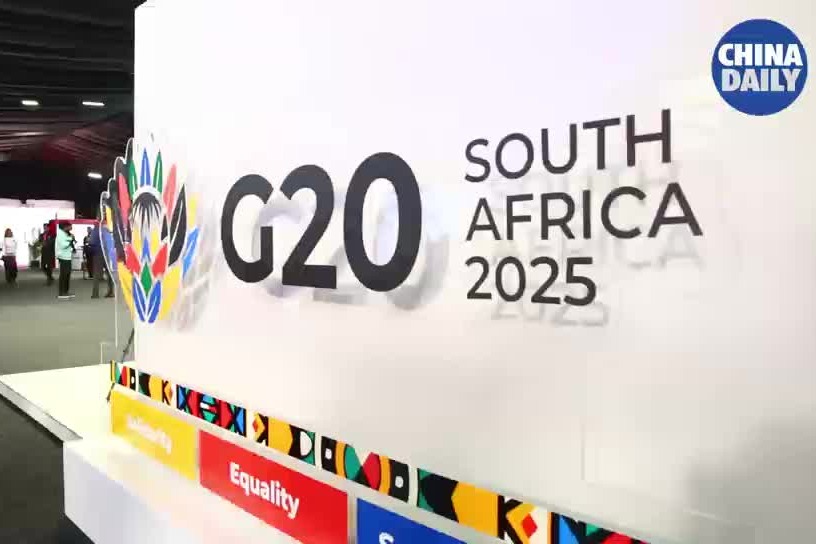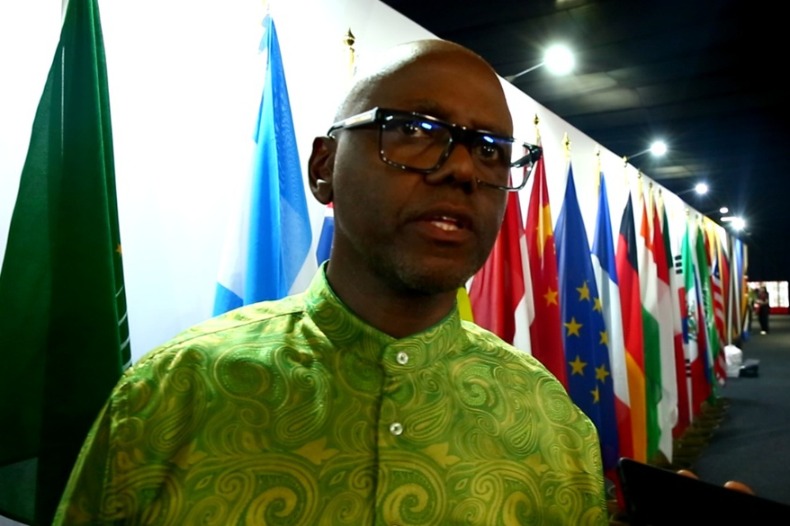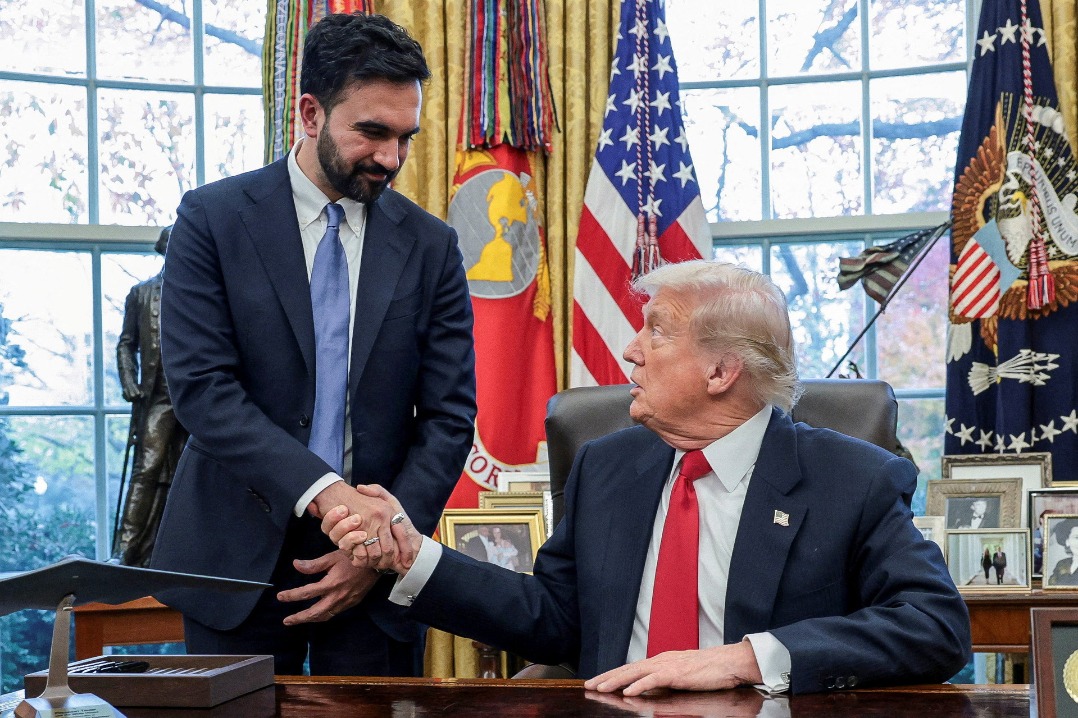Concerns aired over Japan's LDP coalition
New leader faces challenges as partner worries over Takaichi's stance on issues

Takaichi Sanae, the newly elected leader of Japan's Liberal Democratic Party, has appointed former finance minister Shunichi Suzuki as the LDP's secretary-general and former prime minister Taro Aso as its vice-president.
The LDP's new executive lineup also includes former economic security minister Takayuki Kobayashi, who was among the candidates in the party leadership race, as its new policy council chief.
Riding a conservative LDP wave and faction politics, Takaichi won the party leadership election on Saturday and is likely to be voted in as Japan's next prime minister during the upcoming extraordinary parliament session.
However, her victory comes amid signs of strain in the ruling coalition, with some voices within the junior partner Komeito party calling for a possible exit from the alliance.
Experts say that beyond the difficulties of working with opposition parties, Takaichi's first major test after her LDP election will be keeping the coalition with Komeito intact.
Policy analyst Shigeaki Koga, a former official at Japan's Ministry of Economy, Trade, and Industry, said that Komeito — long considered a "stabilizing pillar" in both elections and governance — has taken an unusually hard-line stance this time, clouding the coalition's future.
Komeito and its parent organization, the Soka Gakkai Buddhist group, have expressed concern over Takaichi's views on key issues, including her past visits to the notorious Yasukuni Shrine, which glorifies Japan's wartime militarism by honoring 14 convicted Class-A war criminals.
Another key issue is the "black money" scandal concerning the misuse of campaign funds.
Like the LDP, Komeito lost seats in July's upper house election and saw its reputation harmed by LDP's undeclared funds case.
Takaichi's appointment of a lawmaker involved in the scandal has deepened mistrust within Komeito.
After meeting with Takaichi on Saturday, Komeito party leader Tetsuo Saito said: "Our supporters are deeply uneasy and worried. There is no coalition if we cannot address those concerns."
Komeito's stance this time was "unusually" tough, exceeding outside expectations, and was clearly visible both in public statements and in front of the media, Koga noted. He described it as Saito throwing a particularly difficult "challenge" to Takaichi.
Before the leadership election, most analysts believed that despite growing dissatisfaction within Komeito, the party would ultimately continue its cooperation with the LDP.
Tense atmosphere
However, the current tense atmosphere suggests the coalition may face new cracks, Koga added.
At a news conference after her win on Saturday, Takaichi responded to a question about visiting the Yasukuni Shrine, saying she would "make an appropriate judgment at the proper time".
Koga sees Takaichi's "vague wording" as reflecting her concern for Komeito's position. He said he believed that Takaichi is likely to avoid statements on historical issues that could trigger diplomatic friction.
As Takaichi's main support base comes from the conservative and right-wing factions of the party, she faces the challenge of maintaining a delicate balancing act between "maintaining coalition stability" and "keeping her right-wing support."
Koga said that appearing "too conciliatory" could alienate Takaichi's right-wing supporters.
He said this could prompt her to adopt a tougher stance on other issues to reinforce her conservative image, including stricter immigration controls and measures against illegal foreign residents.
Ukeru Magosaki, director of the East Asian Community Institute and a former senior official at the Ministry of Foreign Affairs, said the LDP's lack of a majority in both houses means that it must rely on cooperation with opposition parties.
However, Takaichi's right-leaning stance could complicate such cooperation, Magosaki added.
houjunjie@chinadaily.com.cn

































